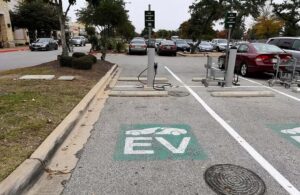Propelling the speed of shifting India towards mass adoption of electric vehicles (EVs), Indian government has planned to develop battery swapping and charging infrastructure on highways.
 The ministry of road transport and Highway (MoRTH) has identified about 700 sites along the Golden Quadrilateral Highway, east-west and north-south corridors and greenfield expressways, to develop wayside centres equipped with various types of charging points for EVs.
The ministry of road transport and Highway (MoRTH) has identified about 700 sites along the Golden Quadrilateral Highway, east-west and north-south corridors and greenfield expressways, to develop wayside centres equipped with various types of charging points for EVs.
The ministry has proposed that contracts for building the charging infrastructure on highways with its centres include battery swapping stations as well. “We are building a charging infrastructure all along the national levels. We identified 700 spots across upcoming and operational highways for putting up EV infrastructure. The infrastructure will include both charging points and battery swapping facilities,” said Giridhar Aramane, secretary, MoRTH.
“The green infrastructure will form part of bids being invited for development wayside amenity along the highways. Over 100 projects have already been awarded and more would be done in due course,” he added.
The government is also expected to finalize the battery swapping policy soon to allow EV users replace their discharged batteries with a charged unit at designated swapping stations without having to wait for hours for charging their existing vehicle batteries. A draft policy for battery swapping was released by NITI Aayog.
A government official, seeking anonymity, said green highways will aid EV adoption in India. “As more and more cities improve their charging infrastructure on highways, mobility on the highways will boost the adoption of EVs. The 700 sites for EV support stations will only be a start, and the goal is to have a charging facility every 10-20 km along the highways,” he added.
A NITI Aayog and Technology Information, Forecasting and Assessment Council (TIFAC) report has estimated 100% electric two-wheeler penetration in India by 2026-27 if the current level of subsidies and incentives are maintained by the government. The report said that even if incentives are withdrawn, e-two-wheeler penetration could grow 72% by FY27.
On its part, the government has also been taking measures to set up battery swapping infrastructure.
The Goods and Services Tax (GST) Council recently said two-wheelers sold without battery packs but suitable for battery swapping, will also be charged 5% duty on a par with other EVs after the industry sought clarification on the policy, which stated that EVs without battery packs will be under 5-12% GST bracket.
The industry is also demanding a lowering of GST on lithium-ion batteries to 5%.
